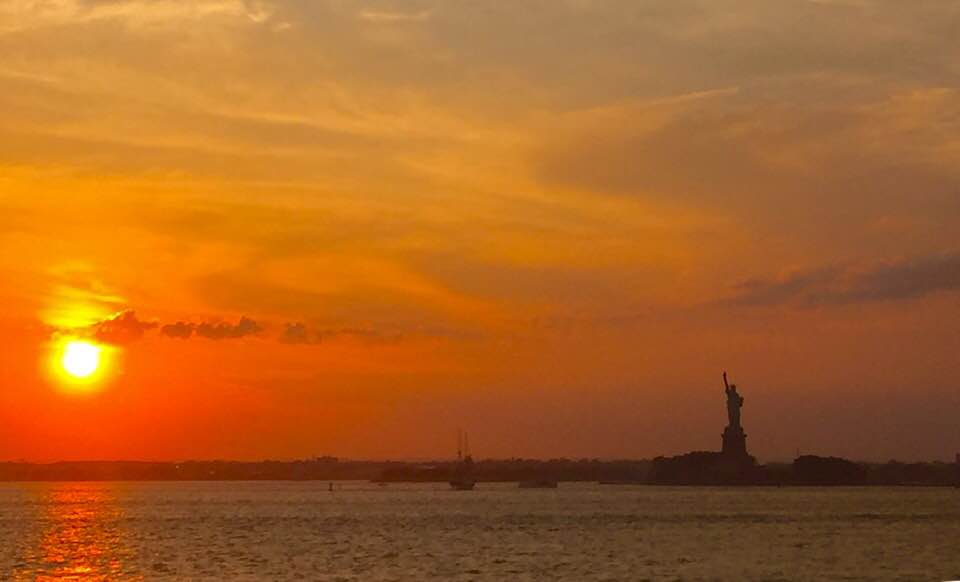Secret Vistas –
By Glynn Wilson –
“If the freedom of speech is taken away then dumb and silent we may be led, like sheep to the slaughter.”
– George Washington
NEW YORK, N.Y. – As Commander of the Continental Army, General George Washington became known not for winning battles against the British so much, but for his strategic retreats. The intelligent traveler these days should keep that in mind and know when to move forward in attack mode, and when to retreat.
Perhaps Washington’s most renowned retreat, which saved the Continental Army from nearly certain defeat and with it the cause of Independence itself, came less than two months after the passage and signing of the Declaration of Independence in July 2-4, 1776.
Washington’s patriot army of 9,000 had failed to stop a British amphibious attack on Long Island and suffered a disastrous defeat at the Battle of Brooklyn, finding themselves trapped by the East River. British General Sir William Howe settled in for a siege, but Washington ordered his men to round up all the flat-bottomed boats they could find. As drenching rains fell on the night of August 29, a hastily assembled flotilla was used to quietly ferry the army across the river to the safety of Manhattan.
A regiment of Massachusetts fishermen who manned the boats used rags to muffle the sound of their oars. Campfires were left burning to deceive the British.
The retreat was still underway at sunrise, but a dense fog rolled in and masked the final stages of the withdrawal. By the time the British finally realized what was happening, all 9,000 colonial troops had slipped away along with most of their equipment and artillery.
“In the history of warfare I do not recollect a more fortunate retreat,” Continental officer Benjamin Tallmadge later wrote.
So it is that after a week of camping by the Hudson River, exploring new publishing options in New York City and searching for optional summer living quarters to escape the worst effects of climate change in the Hudson Valley and the Catskill Mountains, it’s time to pack up and retreat back through Pennsylvania to a safe haven in Maryland for the time being.
We accomplished a few victories on this trip. We found one of the most interesting campgrounds in the East at the mid-point of the Appalachian Trail by a new museum to document the trail’s creation. We found one of the best campgrounds in the country by the Hudson River and discovered the best route to get here and travel into the city without having to board a plane or commission an expensive hotel. We took a day trip north into the Hudson Valley and drove up into the Catskills, looking on the map for campgrounds and checking out property for sale, along with places to find local produce and eat out for reasonable prices.
More on the details of all that later. It’s time to pack up and get ready to check out and hit the MoJo Road once again.
I see the news is full of more mass shootings in Texas and Ohio, and an escalation of the trade war with China by President Donald Trump. The stock market had the worst week of the year in response. This is not going to end well.
But before I go, I want to tell one story about Croton Point Park on the Hudson.
While a number of minor military events took place here during the American Revolutionary War, many involving invasions by the British, the most notorious was connected with the attempted betrayal of West Point by Benedict Arnold and the capture of his British confederate, Major John Andre.
Andre had conspired to meet with Arnold on board the British frigate, Vulture, which had anchored off the western end of Teller’s Point in September of 1780. Fearing for his safety, Arnold sent word for Andre to meet him on the western shore of the Hudson River at Haverstraw.
While they were meeting on the opposite side of the river, American militiamen on Verplanck’s Point fired upon the Vulture with a small cannon, forcing her to move downstream. Major Andre, separated from his means of escape, crossed the river at King’s Crossing, clad in an American uniform and carrying a pass stating that he was on official business for General Arnold. He was captured in Tarrytown and subsequently hung as a spy. The cannon that fired upon the Vulture is on display at the Peekskill Museum.
You see it doesn’t pay to betray your country.
We will definitely return to this location for future forays into New York and to explore points north in the mountains. See you down the road, or out on the trail.















